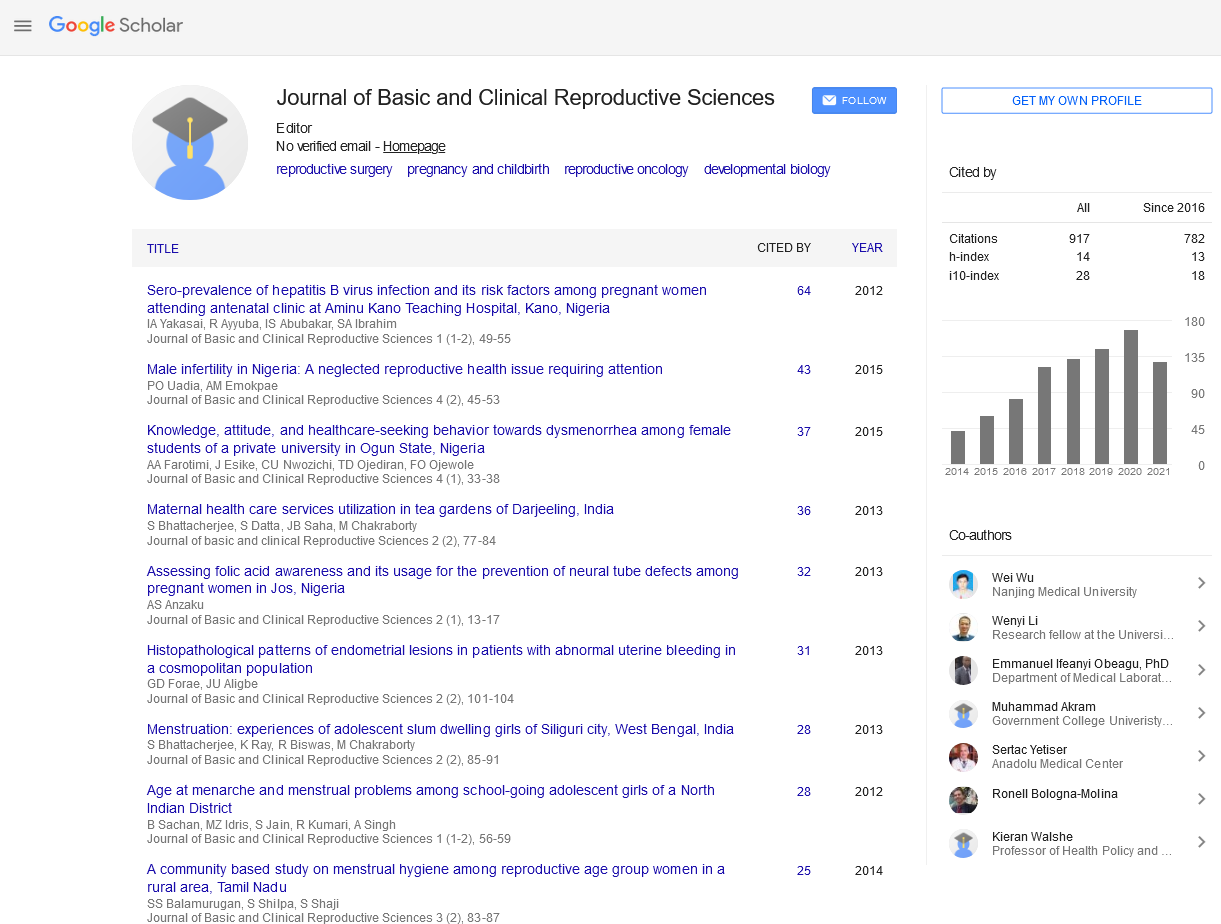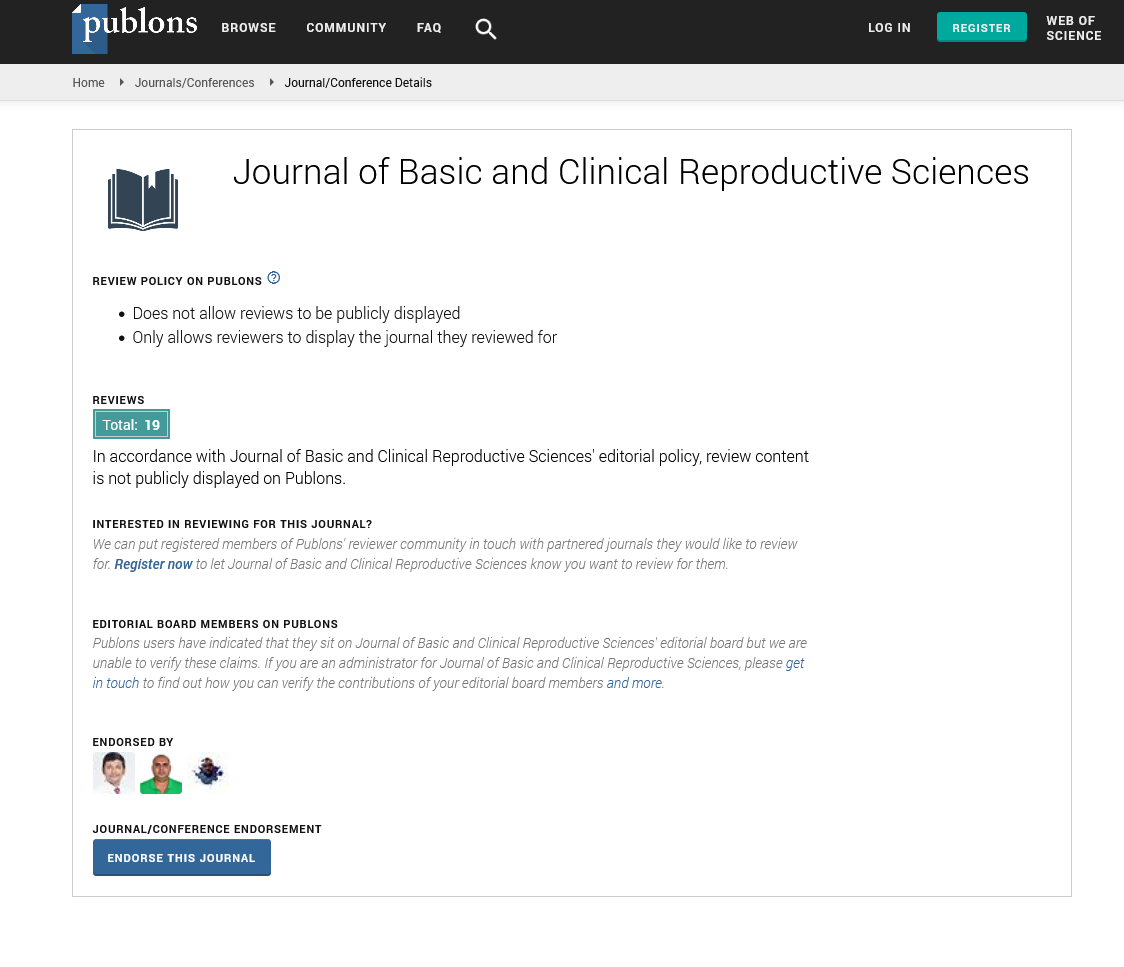Editorial - Journal of Basic and Clinical Reproductive Sciences (2021) Volume 10, Issue 4
Current Research in Embryology
Received: 16-Mar-2021 Accepted Date: Mar 31, 2021 ; Published: 07-Apr-2021
This open-access article is distributed under the terms of the Creative Commons Attribution Non-Commercial License (CC BY-NC) (http://creativecommons.org/licenses/by-nc/4.0/), which permits reuse, distribution and reproduction of the article, provided that the original work is properly cited and the reuse is restricted to noncommercial purposes. For commercial reuse, contact reprints@pulsus.com
Abstract
Embryology, the study of the formation and development of an embryo and fetus. Embryology is that the branch of biology that studies the prenatal development of gametes (sex cells), fertilization, and development of embryos and fetuses. Additionally, embryology encompasses the study of congenital disorders that occur before birth, referred to as teratology. Early embryology was proposed by Malpighi, and referred to as preformations, the idea that organisms develop from pre-existing miniature versions of them. Then Aristotle proposed the idea that's now accepted, epigenesist. Embryology may be a branch of science that's associated with the formation, growth, and development of embryo. It deals with the prenatal stage of development beginning from formation of gametes, fertilization, formation of zygote, development of embryo and fetus to the birth of a replacement individual. Two basic processes involved are growth and differentiation. These cause formation of varied tissues and organs in body specialized to perform specific functions. Other characteristics of hematopoietic neoplasms differentiate tumor genesis in these cells from tumor genesis in epithelial cells. Leukemia’s tend to develop from committed stem cells or progenitor cells that have substantial replicative capacity
Biography
due to this, disruption of fewer cellular pathways could also be required for tumor genesis in hematopoietic cells. Many leukemia’s, lymphomas, sarcomas, and pediatric neoplasms develop as a consequence of specific translocation events that form chimeric proteins with novel functions (see above). Embryogenesis, the primary eight weeks of development after fertilization, is an incredibly complicated process. It’s amazing that in eight weeks we’re transforming from one cell to an organism with a multi-level body plan. The circulatory, excretory, and neurologic systems all begin to develop during this stage. It deals with the prenatal stage of development beginning from formation of gametes, fertilization, formation of zygote, development of embryo and fetus to the birth of a replacement individual. Two basic processes involved are growth and differentiation. These cause formation of varied tissues and organs in body specialized to perform specific functions. Other characteristics of hematopoietic neoplasms differentiate tumor genesis in these cells from tumor genesis in epithelial cells. Leukemia’s tend to develop from committed stem cells or progenitor cells that have substantial replicative capacity. Two basic processes involved are growth and differentiation. These cause formation of varied tissues and organs in body specialized to perform specific functions.


